Last month, the LANDTHINK Pulse posed the following question to our audience: What would be your primary use for purchasing recreational land?
Our informal online survey revealed that 30.1% of respondents indicated that if they were to purchase recreational land for sale, the primary use would be for Camping/RVing. The lure of rural land continues to be a bright spot during the coronavirus pandemic, as outdoor recreation has surged like never before. Since it all began in March of 2020, you’d be hard pressed to find anyone who hasn’t dreamt of owning recreational land, as stay-at-home orders, the closure of public outdoor spaces and sports facility closures have left them with limited opportunities to do what they love.
March Pulse Sponsored by
For those unfamiliar with the land sector of the real estate industry, the term “recreational land” may present some confusion. Recreational land is property that is used primarily for outdoor enjoyment like camping, fishing, hunting, ATVing, hiking, wildlife preservation, etc. It is an often-overlooked asset, and is different than other land types in that the buyers’ overriding motive is their wants and passions as opposed to being an attractive addition to an investment portfolio.
When asked what would be their primary use for recreational land, the majority of our LANDTHINK audience (30.1%) revealed a strong enthusiasm for camping and RVing. Closed borders and limited travel options are drawing more campers and first-time campers to the outdoors. As FOX Business reports, rentals and sales for recreational vehicles and camper vans have soared during the pandemic. Outdoor recreation has been growing for decades, but the pandemic helped to spur an additional spike in people getting outside to safely enjoy a range of activities and breathe in the fresh air.
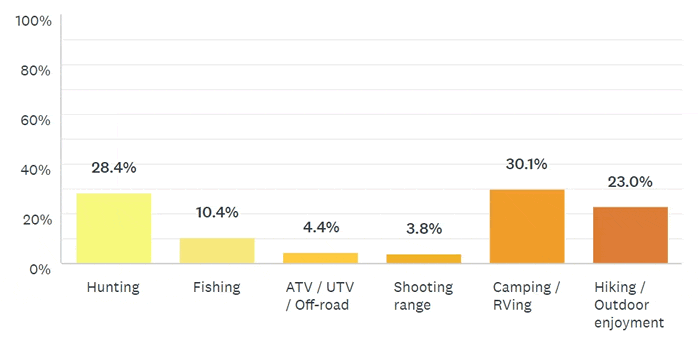
Coming in a close second was hunting, with 28.4% saying that they would use their recreational property primarily for this purpose. For the outdoors enthusiast, owning rural acreage in almost any state offers prime hunting opportunities, especially if you take the initiative to improve the land and habitat for deer and other wildlife. Hunting on your own land allows you to connect with nature and provides a safe escape. Amid the pandemic, buyers are opting for smaller tracts (under 20 acres), as a recent Pulse revealed. But if you’re scouting out hunting land specifically, most land agents recommend at least 50 acres for hunting deer with a rifle. The amount of acreage needed for hunting varies, depending on the wildlife you plan to hunt, your style of hunting, and how many hunters will be on the property on with you.
There are some solid personal and economic reasons why investing in a recreational property now could pay off down the road:
Tax Benefits – Buying land does not immediately create income, often it creates an expense. You may be able to deduct the carrying costs associated with the property (property tax, interest, etc) under certain circumstances. Landowners can also consider the donation of a conservation easement. If the donation of the conservation easement meets the IRS requirements, it is deductible for federal income tax purposes. Keep in mind that restrictions will be placed on the property pursuant to the conservation easement, and they are perpetual and binding on all future owners of the property.
Inexpensive to Own – Land prices vary based on a variety of factors like location, features, natural resources and more, but it can be purchased at a great price. Aside from paying property taxes and keeping the land mowed or secured, there’s little to no maintenance required.
Profound Effects on Mental Health & Happiness – When you’re outdoors camping, hunting, fishing, hiking, ATVing, or taking part in any activity that gets you outside and into nature, it improves your physical and mental health. Additionally, it gives you a place to eventually build on and move to when you retire.
Limited Supply and Increasing Demand – There is a finite amount of available land, making it a very attractive commodity in a world where the population continues to increase exponentially. If you choose to invest in a growing area, land will become even more scarce and therefore, more valuable.
Source of Income – There are ways to offset the costs of land acquisition. For landowners, the possibilities are almost endless for how they can turn their recreational land into revenue. Depending on the characteristics of the property that is purchased, hunting leases, campground leases, harvesting timberland, solar leases, or cell towers are all ways landowners can bring in some degree of income.
Peace of Mind – Land provides safety and security in uncertain times. Even if the land you buy is not your primary residence, if it has good hunting or fishing, it can be an excellent supplemental food source for your family. Depending on the local zoning regulations, you may also be able to grow crops on your recreational land.
Whether you’re using the services of a land broker or going it alone, before you decide to purchase recreational land there are a number of issues to consider. It’s also important to uncover your motives and end goals for buying land. If you’re buying land for the first time, there are some things you need to know that will help you get started with your land purchase.
There are many considerations you’ll need to mull over. If it’s something you’re seriously considering, seek the guidance of licensed real estate agents, attorneys and tax accountants specializing in land sales. These professionals will work together to ensure your end goal is met.
The results of last month’s survey showed that buyers’ opinions vary in terms of how they would make the most of recreational land that they owned. It was a mixed bag of results, but the largest percentage (30.1%) indicated that they would use the the land primarily for Camping/RVing, followed closely by 28.4%, who indicated that they would use their land for Hunting. A large percentage (23.0%) said that they would purchase recreation land for Hiking or Other Outdoor Enjoyment. Only 10.4% of respondents said that they wanted to buy recreational land and use it for Fishing. Surprisingly, ATV/UTV/Off-road use (4.4%) and Shooting Range (3.8%) were activities that were of the least interest to buyers of recreational land.
LANDTHINK would like to thank Hayden Outdoors Real Estate for sponsoring the March Pulse and for choosing a very interesting question to pose to our audience. Hayden Outdoors is currently licensed in real estate in Colorado, Kansas, Montana, Missouri, Alaska, Iowa, Oregon, Idaho, Nebraska, South Dakota, Oklahoma, Wyoming, New Mexico, Texas and Utah. Outdoor recreation is deep in their hearts and minds, and it is what drives the team at Hayden Outdoors. Hayden Outdoors represents buyers and sellers of the finest land, ranches, and farm properties for sale. Contact their team of brokers and agents to help you sell or buy your next property.
Become a Pulse sponsor! It’s a great way to ensure your brokerage is the first one buyers and sellers call when they have a need to buy or sell property. You’ll get insane exposure on Social + Email + Web. That’s 500,000+ monthly eyes on you! Once you have it, you won’t want to give it up! Pulse sponsorships are offered on a first come first serve basis and are subject to certain limitations. If your business would be interested in sponsoring a Pulse question, please contact us soon.
Do you have a suggestion for next month’s Pulse question? Submit your question and we might choose yours!
We want to know what you think about our April Pulse question, chosen and sponsored by Mossy Oak Properties: Post COVID-19, do you think people will continue to leave larger cities and relocate to rural areas? Answer now.
This content may not be used or reproduced in any manner whatsoever, in part or in whole, without written permission of LANDTHINK. Use of this content without permission is a violation of federal copyright law. The articles, posts, comments, opinions and information provided by LANDTHINK are for informational and research purposes only and DOES NOT substitute or coincide with the advice of an attorney, accountant, real estate broker or any other licensed real estate professional. LANDTHINK strongly advises visitors and readers to seek their own professional guidance and advice related to buying, investing in or selling real estate.






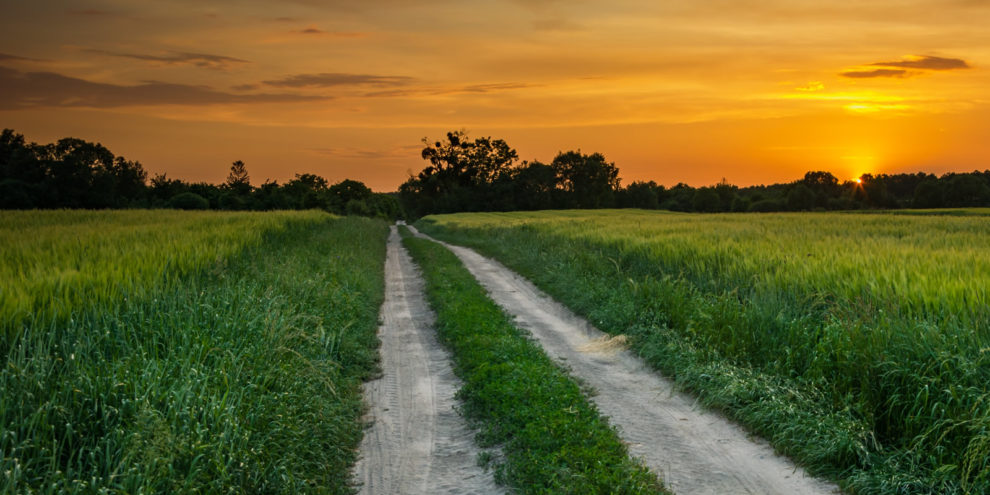

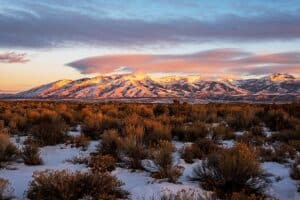
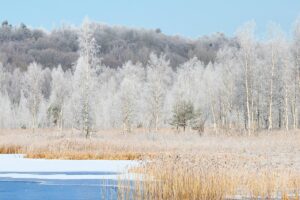
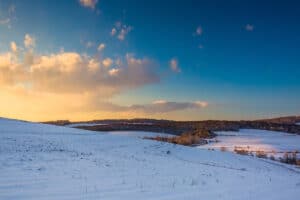
I purchased rural land when I was in my twenties over 30 years ago, built my own home on it, no better place to raise a family, hunting, atvs, fishing snowmobiles, bon fires, shooting sports, pole barn, huge camping parties. Pig roasts. It’s like living up north every day. My life never changed due to the pandemic other that the fact I I was forced to stay in paradise. Now as a broker I have a window into a life others really don’t understand.
Thanks for the interesting ideas and avenues for additional income off land that is a outside the box.